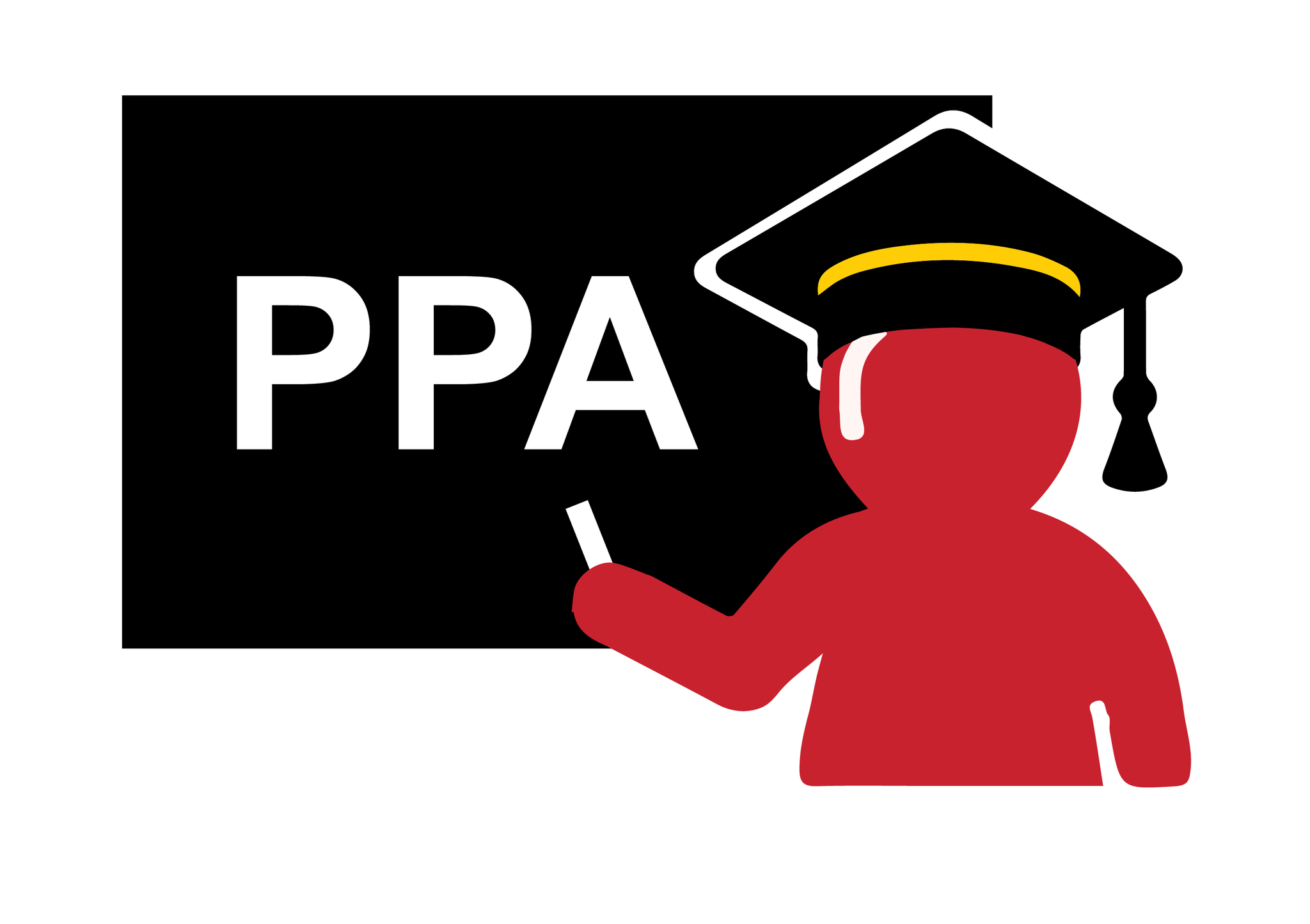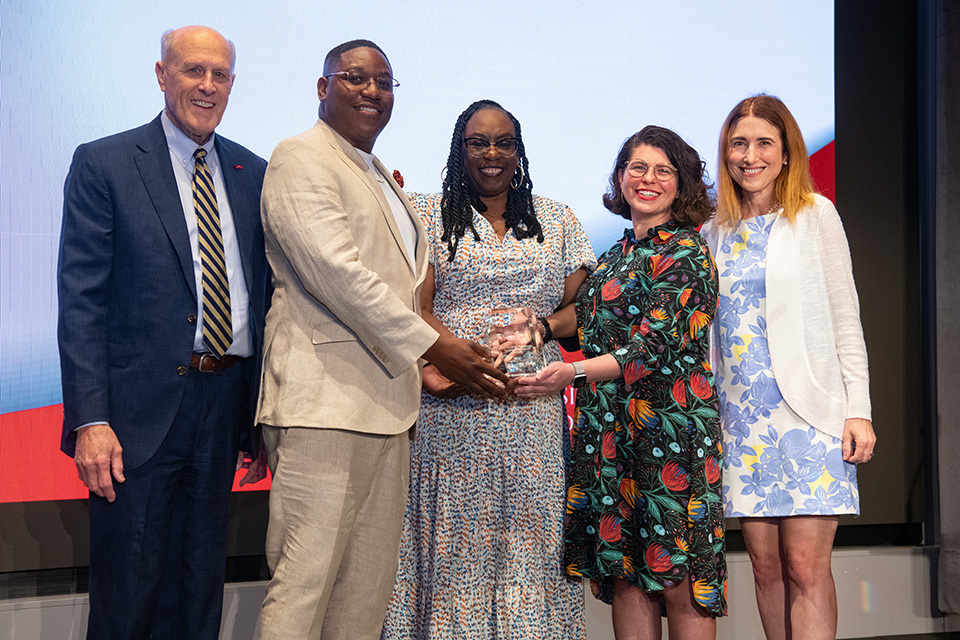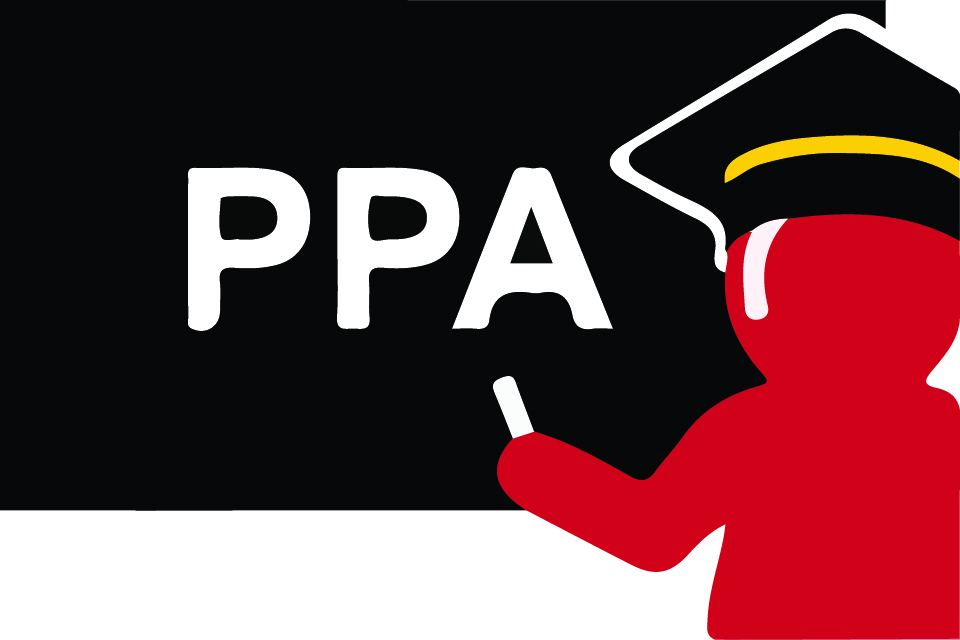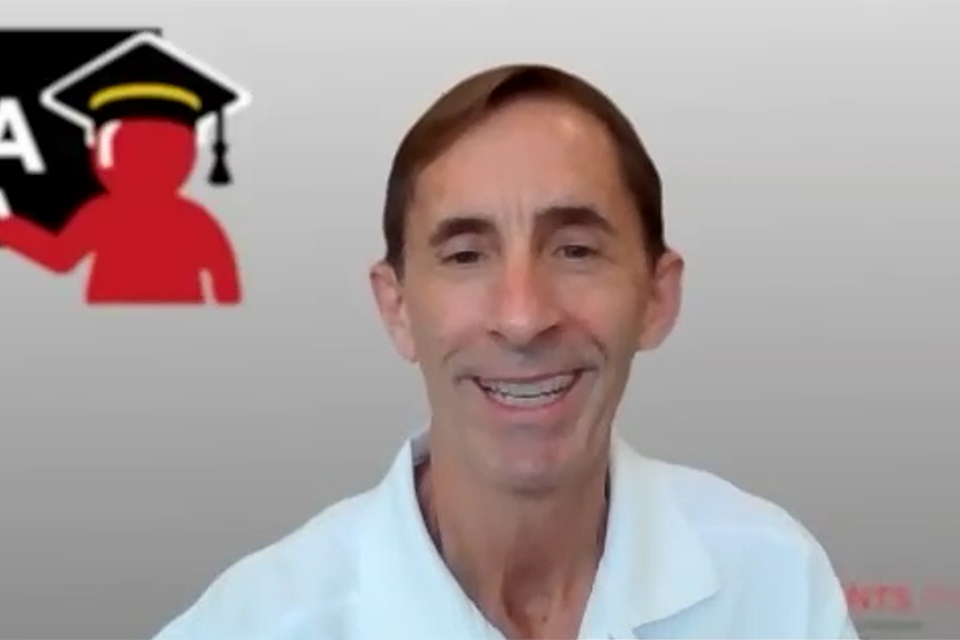Third PATIENTS Professors Academy Class Celebrates Graduation
More than 50 participants spent five weeks this summer learning how to be patient advocates and advance health equity in their own communities.

By Emily Bleiweis
September 10, 2024
The PATIENTS Professors Academy (PPA), an initiative through the PATIENTS Program at the University of Maryland School of Pharmacy (UMSOP), celebrated the graduation of its third cohort on Aug. 19. Fifty-two people participated this summer in the five-week online program, which brought together patients, caregivers, government representatives, researchers, pharmaceutical representatives, and more to learn how to conduct patient-centered and community-engaged health research.
“It’s always exciting to meet so many people committed to raising the voice of patients and communities and research,” said Joe Howarth, a training specialist with the PATIENTS Program during the graduation ceremony.
The PATIENTS Program, part of UMSOP’s Department of Practice, Sciences, and Health Outcomes Research (P-SHOR), is an interdisciplinary research team that partners with patients and communities to advance patient-centered research methods to create a path for health equity.
It was roughly four years ago when C. Daniel Mullins, PhD, executive director of the PATIENTS Program and a professor in P-SHOR, and Hillary Edwards, PhD, MPH, the program’s director of methodological research and evaluation, sat down with an advisory board to plan the PPA. They envisioned it would teach the PATIENTS Program’s 10-Step Framework for continuous patient and community engagement, which equips patients, communities, and care providers to drive health care research in their communities. PPA’s weekly courses focus on health equity, the role of the credible messenger in communities to develop research partnerships, co-development of research, and the return of research results to the community.
“We started recruiting patients, community leaders, community-based physicians, and people from various private sector industries to apply to PPA,” Mullins said. “Time has flown by. I remember very well that first graduating class and how excited we all were that there would be so many more people who could make a difference in the way that we do research. I’m really excited that as of today, there’ll be even more of you.”
Throughout this year’s graduation ceremony, participants shared their experiences both in the health care system and with the summer program, and how they hope to use the knowledge they’ve gained.
For Salathiel DeLoach, a PPA participant from Georgia who was diagnosed with lupus 23 years ago, PPA is helping build on her advocacy work in Savannah, where she runs the DeLoach Lupus Foundation, a nonprofit that aids young adults who are fighting lupus and in financial need.
“I started advocacy work because I noticed a lack of necessary resources for lupus patients,” she said, later adding, “I have already reached out to the director of our local health department to share the things that I’ve learned in the PPA.”
Curtis Warfield, a PPA participant from Indiana, has been a patient advocate for seven years. In 2012, Warfield was diagnosed with stage three focal segmental glomerulosclerosis, which impacts the kidneys. Two years later his kidneys failed, and by 2015, Warfield was on the transplant list.
“I was told it was going to be a minimum of four years wait time, and that’s when my daughter researched becoming a living donor,” he said.
Unfortunately, Warfield’s daughter was not a match, but her college roommate was. Warfield’s transplant was in January 2016.
“Her kidney worked immediately, and it was at that time that I knew, through all of what I went through and what these two young ladies did for me, I needed to step up and become a voice for kidney patients,” Warfield said.
“As I lift my voice, we must remember that despite our patient label, we are not objects, or a subject, or a study,” he added. “We still have a personality, we still have a mind, we still have feelings, we still care for other people. Our voice is as important as anyone else’s. We ask that you listen to us. We should and need to be actively heard.”



